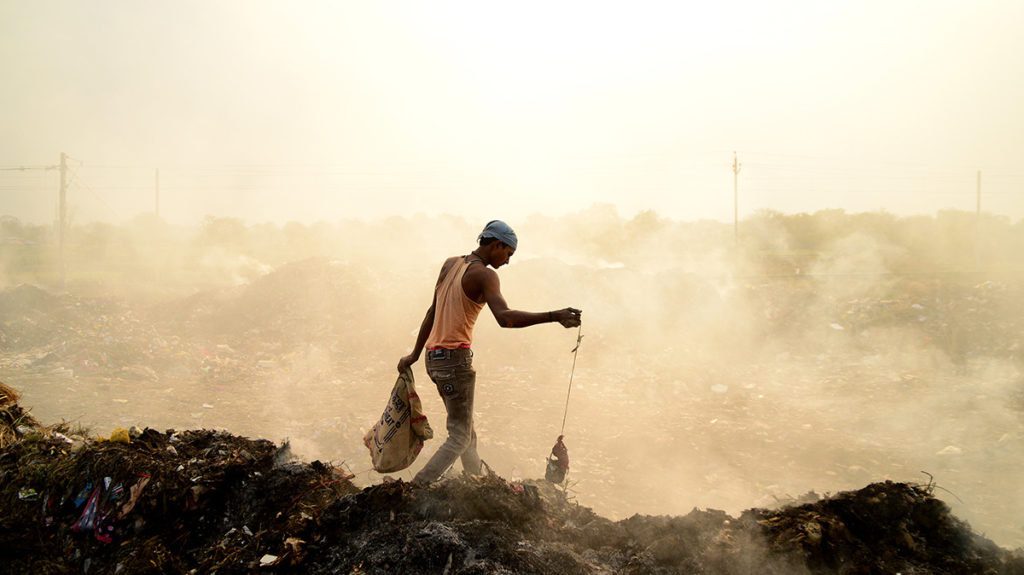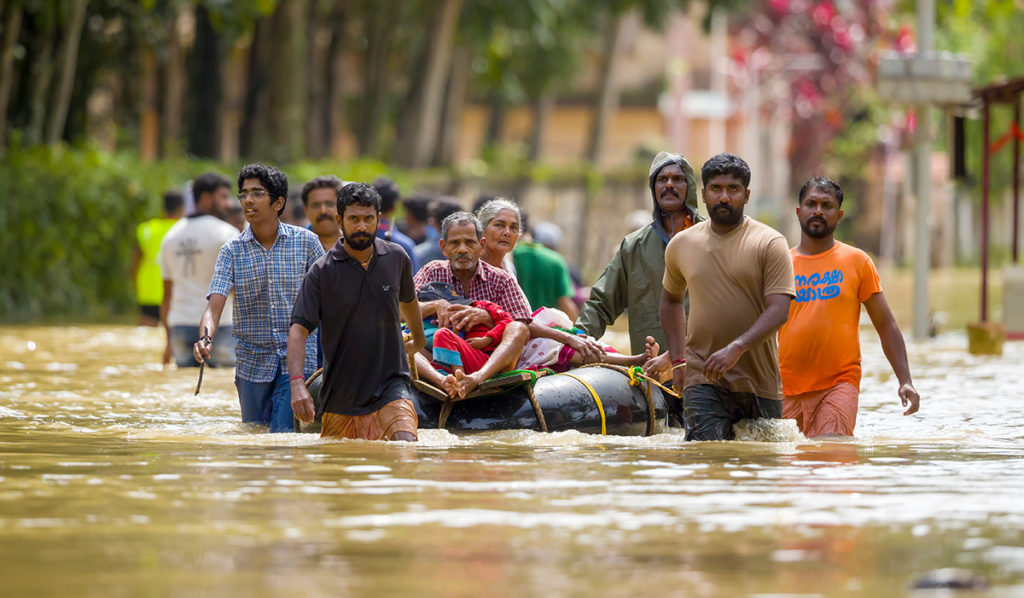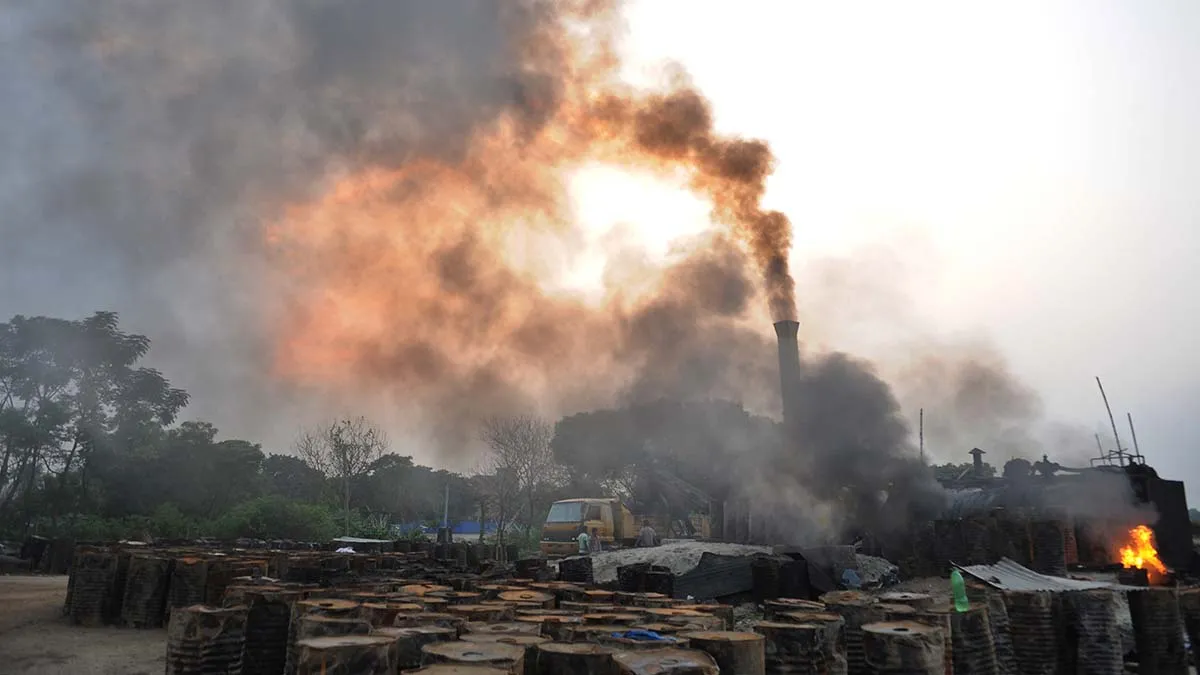THE World Health Organisation (WHO) couldn’t have come out with more sobering news just before World Health Day. According to WHO, 99% of the global population is breathing air that exceeds quality limits and threatens people’s health. The world body says that people living in urban areas are most vulnerable as they are breathing unhealthy levels of fine particulate matter and nitrogen dioxide. The worst affected are the people living in low and middle-income countries. India is one of them.
It is no wonder that the United Nations has decided that the theme for this year’s World Health Day would be “Our It is no wonder that the United Nations has decided that the theme for this year’s World Health Day would be “Our planet, our health.” According to the UN, over 13 million deaths worldwide each year are because of avoidable environmental causes. This includes climate change. In fact, most environmental factors have a direct effect on health.
The exponential progress of industry and technological advancements have meant that we humans have been contributing to air pollution and global warming through our lifestyles. The United Nations says that we are producing and consuming more than ever before, and we’re generating more greenhouse gases (GHGs) and air pollutants than ever before. Pollution and climate change are two sides of the same coin.
Pollution and India
According to a study published last year, at least 30.7% of deaths in India can be attributed to air pollution from fossil fuels. In other words, around 2.5 million people die every year after breathing toxic air. That was the conclusion of scientists from Harvard University, University College London and other institutions in a paper published in Environmental Research. The report noted that air pollution from fossil fuel use was responsible for 1 in 5 deaths worldwide.

India’s record on pollution is one of the worst in the world. For instance, according to the World Air Quality Report, prepared by Swiss organisation IQAir, as many as 35 of the 50 cities with the worst air quality were in India. And Delhi continued to be the world’s most polluted capital in the world.
WHO says that particulate matter, especially PM 2.5 can penetrate deep into the lungs and enter the bloodstream leading to cardiovascular, cerebrovascular and respiratory diseases. The WHO also says that particulate can badly affect other organs too. Nitrogen Dioxide (NO2) is another dangerous and highly reactive gas that gets in the air from burning fuel through power plants, cars, trucks, and buses.
It could lead to respiratory diseases, particularly asthma, leading to other respiratory problems like coughing, wheezing, or difficulty breathing.
Alarm bells
The United Nations’ Intergovernmental Panel on Climate Change (IPCC) in its latest report says that human-induced climate change is a consequence of more than a century of net GHG emissions from unsustainable energy use, land use, lifestyle and patterns of consumption and production.

The importance of staying healthy was reinforced by Covid-19 which had a global impact. It was harshest on people who were already vulnerable. Those with existing diseases and people with less access to quality health care services faced the consequences the most.
Urgent action is the need of the hour
“Without urgent, effective and equitable mitigation actions, climate change increasingly threatens the health and livelihoods of people around the globe, ecosystem health and biodiversity,” the IPCC report says.
The IPCC report says that promoting “walkable urban areas” combined with electrification and renewable energy can create health benefits from cleaner air and enhanced mobility. Better housing policies that reduce daily transportation could also help in reducing daily pollution.
Protecting the earth’s environment means taking several mitigation steps like increasing the use of solar energy and wind energy, electrification of urban transport systems, increasing green cover in urban areas, adopting energy-efficient methods, better waste management and others.
Health is a fundamental right, and we can exercise this right better by making lifestyle changes and also supporting and volunteering with several NGOs involved in tackling issues of climate change, pollution, and protecting our environment.
Established in 2000, Give is the largest and most trusted giving platform in India. Our community of 2M+ donors and 250+ corporate partners and brands have supported 2,500+ nonprofits, impacting 15M+ lives across India.

Kumara was a professional journalist for over 15 years, with stints in The Telegraph and Reader’s Digest. He grew up hating maths and physics. He is a post-graduate in history. Kumara believes that cricket and Seinfeld have answers to most questions that life throws at you.
Discover more from
Subscribe to get the latest posts sent to your email.

